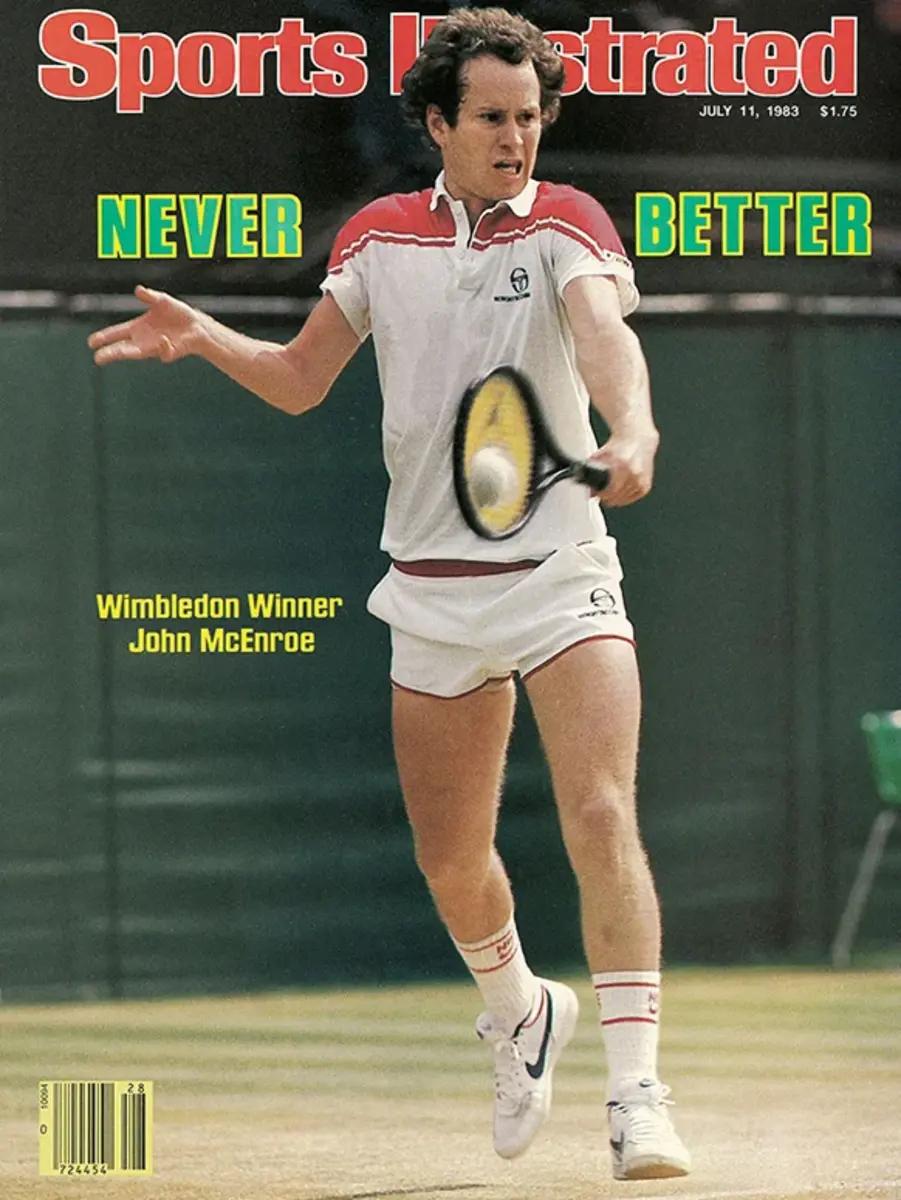SI:AM | The Orioles Aren’t a Total Embarrassment Anymore
Good morning, I’m Dan Gartland. There are no easy wins in the AL East this year.
In today’s SI:AM:
🐦 These aren’t your same old Orioles
⚾ Yankees dominate MLB All-Star roster
If you're reading this on SI.com, you can sign up to get this free newsletter in your inbox each weekday at SI.com/newsletters.
The rebuild is edging closer to completion
Don’t look now, but the Orioles are a competitive baseball team again.
Baltimore just finished up a four-game sweep of the Angels with a 9–5 win yesterday. The O’s have now won eight in a row, dating back to July 3, which puts their season record at 43–44. They’re still in last place in the stacked AL East, but are, improbably, just two games back of the AL’s final wild-card spot.
It’s a stunning turnaround for the Orioles, who, after letting Manny Machado walk in free agency before the 2019 season, stripped their roster down to the studs and began the dreaded “rebuild.” Their ’18 Opening Day payroll was $148.6 million, 13th highest in the majors (for a team that finished 47–115). In ’19 they slashed that to $80.2 million, 27th highest in the majors. They went 54–108 in ’19, 25–35 in the shortened ’20 season and 52–110 last year.
But the Orioles are showing signs of life this year. Their overall stats aren’t going to knock your socks off, but they’re doing just fine. They’ve scored 360 runs this season (league average is 372) and allowed 374. But league average is a vast improvement over where this team has been in recent years, and it’s bringing fans back to the ballpark. Friday’s and Saturday’s games at Camden Yards marked the first time since May 2018 that the Orioles drew at least 25,000 fans on back-to-back days (excluding games against the Yankees and Red Sox that are usually dominated by out-of-towners).
There are a few guys they can thank for the turnaround, most notably Adley Rutschman. After picking him first in the 2019 draft, the Orioles finally called Rutschman up to the majors in late May, and he’s off to a completely respectable start, slashing .221/.307/.407. Baltimore’s biggest strength, though, is its bullpen. The starting rotation is a glaring weakness (ranked fifth-worst in the majors by wins above average), but the bullpen is the best in baseball by that same metric. Reliever Cionel Pérez has a 0.96 ERA in 28 innings pitched, and only one reliever with more than 20 appearances has an ERA over 2.61.
ESPN’s Jeff Passan pointed out in a tweet yesterday that the Orioles are finding a way to win “with a payroll lower than Max Scherzer’s salary,” which, depending on your opinion of the ownership class, is either a remarkable achievement or a total indictment. I’m inclined to say it’s a frustrating display of frugality. If the Orioles can be just shy of .500 at the midpoint of the season with the lowest Opening Day payroll in the majors ($43.7 million), then imagine what they could do if they actually spent money. This offseason, they signed just one free agent to a deal worth more than $900,000: pitcher Jordan Lyles (one year, $7 million). Lyles, who is tied for the AL lead in runs allowed, and Trey Mancini are the only players on the team being paid more than $3.2 million by Baltimore. (Rougned Odor is making $12 million this year after being released by the Rangers, but the Orioles are paying him only the veteran’s minimum of $700,000.) The Orioles were never going to pay Scherzer, but how much better would they be if they had signed a guy like Carlos Rodón or even Jon Gray to improve that lackluster rotation?
Baltimore’s recent hot streak creates a very interesting dilemma. Mancini, who can become a free agent this winter if he declines his $10 million mutual option, has been mentioned for weeks as a potential trade target. But might the Orioles be inclined to keep him, or—gasp—even add at the deadline, in hopes of making a run for one of the last spots in the expanded playoffs? Recent history says no, but if they keep playing like they have over the past few weeks, the front office might not have a choice.
The best of Sports Illustrated

As we begin to roll out our annual “Where Are They Now?” package, today’s Daily Cover features Chris Ballard on John Amaechi, the first NBA player to come out as gay and now a psychologist.
The Wimbledon men’s final “lived up to its billing,” Jon Wertheim writes, with Novak Djokovic capturing his fourth straight title in London to move to within one of Rafael Nadal’s record for all-time major championships. … Ben Pickman graded each player in the WNBA All-Star Game, highlighted by Kelsey Plum, who scored an ASG record 30 points. … Before he was named to the All-Star team, Emma Baccellieri wrote about Sandy Alcantara’s ability to pitch deep into games.
Around the sports world
Here are the full MLB All-Star rosters, led by six members of the Yankees. … The WNBA announced plans to play a 40-game schedule next season, up from 36 this year. … The Yankees are reportedly entertaining the idea of trading struggling outfielder Joey Gallo. … The Braves acquired Robinson Canó in a trade with the Padres after he put up good numbers in Triple A for San Diego. … The Steelers’ stadium reportedly has a new name.
The top five...
… things I saw yesterday:
5. Carlos Rodón’s wife’s reaction to him being left off the All-Star team
4. Jose Trevino’s reaction to learning he made the All-Star team
3. The former high school gym for sale as a house in Indiana
2. Alex Verdugo’s in-game interview during Sunday Night Baseball
1. The WNBA’s All-Star Game tribute to Brittney Griner
SIQ
Saturday was the 20th anniversary of the 2002 MLB All-Star Game, which infamously ended in a tie. But it also featured one of the most famous plays in All-Star Game history, when which player robbed Barry Bonds of a home run in the first inning?
Friday’s SIQ: Which of the following players did not score when Germany beat Brazil 7–1 in the 2014 World Cup semifinals?
- Thomas Müller
- Mesut Özil
- Toni Kroos
- André Schürrle
Answer: Mesut Özil. Thomas Müller opened the scoring in the 11th minute, followed by Miroslav Klose in the 23rd minute. Then the wheels really came off. Toni Kroos scored in the 24th and 26th minutes, followed by a goal from Sami Khedira in the 29th minute that made it 5–0. André Schürrle added two goals in the second half to complete the humiliation. Oscar’s goal for Brazil in the 90th minute was the equivalent of a football team kicking a field goal to make it 35–3. (You can watch all the goals here. Or, if you’re a real sicko, you can watch the entire match on FIFA’s YouTube channel.)
Brazil had high hopes for the 2014 World Cup. The soccer-mad country was hosting its first World Cup since 1950, when it lost to Uruguay in the final and seeking its sixth World Cup victory (all by the men’s team). Brazil hadn’t lost a competitive game on home soil since ’75. To lose would have been disappointing enough. To be so thoroughly embarrassed before 30 minutes of play was a tragedy.
From the Vault: July 11, 1983

John McEnroe and Martina Navratilova were unstoppable at Wimbledon in 1983.
Curry Kirkpatrick’s cover story was all about how “thoroughly whacked-out” that year’s tournament had been. Second-seeded Chris Evert bowed out in the third round after she was up all night with a stomach virus, New Zealand’s Chris Lewis, the 91st-ranked player in the world, became the first unseeded player to make a Wimbledon final in 16 years and American Trey Waltke wore some weird pants. But in the end, all was right with the world, because McEnroe and Navratilova cruised to victory.
McEnroe, who won in 1981 and would win again in ’84, dropped just a single set all tournament long (the opening set against Florin Segărceanu in the second round). And while he did play some tightly contested sets (like in his 7–5, 7–6, 7–6 fourth-round win over Bill Scanlon), he breezed past Lewis in the final 6–2, 6–2, 6–2. Here’s how Kirkpatrick recapped the final:
“Mac lost only nine points on serve all afternoon. On the receiving end, he was just as impenetrable, repeatedly blistering returns to places where Lewis’ quick feet could not carry him. The fifth game of the second set was a prime example. Lewis got his first serve in on all six points, but at 30–15 Mac blocked a backhand return winner and then whipped twin forehand passes within an inch of each other for the break. He had stretches of 12 and 13 straight points and won 24 of the last 30 points in the match.”
As for Navratilova, she didn’t drop a single set. In fact, the defending champion had only two matches (out of seven) in which she dropped more than three games. Her seven matches lasted a total of five hours and 32 minutes, or 47 minutes per match. She would go on to win the next Wimbledons as well, giving her a stunning six straight titles.
Check out more of SI’s archives and historic images at vault.si.com.
Sports Illustrated may receive compensation for some links to products and services on this website.
